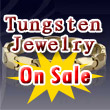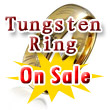Electronic & Electrical Industry
Tungsten is practically the only material used for electron emitters. Although other, more electropositive, metals would yield higher emission rates, the advantage of tungsten is its extremely low vapour pressure even at high temperatures.
This property is also important for electrical contact materials. While more conductive metals like copper or silver evaporate (erode) under the conditions of an electric arc, tungsten withstands these.
The following list illustrates some of the resulting tungsten applications:
- Directly heated cathodes or heater coils for indirectly heated cathodes in cathode ray tubes for TV sets or computer displays, X-ray tubes, electron tubes, klystrons, magnetrons for microwave ovens;
- Thoria or rare earth oxide alloyed rod electrodes for inert gas welding (TIG welding electrodes), as well as High Intensity Discharge (HID) lamps;
- Tungsten disks for substrate of high powder semiconductor rectifying devices;
- Electrical contacts :
- sintered pure tungsten contacts for various applications
- sintered tungsten-copper or tungsten-silver contacts for high-voltage breakers
- infiltrated tungsten-copper or tungsten-silver contacts, made from very coarse (50-150 µm) tungsten metal powder;
- High temperature furnace parts such as tungsten heating coils, reflectors and structural material;
- Tungsten / tungsten-rhenium thermocouples for measuring the temperature in such furnaces;
- X-ray tubes for medical use are not only equipped with a tungsten emitter coil, but also with a rotary (or static) anode made of tungsten or tungsten/ tungsten-rhenium. Important here are not only the low vapour pressure, but also tungsten’s good heat conductivity and the wavelength of the resulting X-rays;
- Calcium and/or magnesium tungstate is the phosphor in intensifying screens used with the X-ray photo films. These phosphors convert X-rays into visible (blue) light, resulting in a smaller X-ray charge for the patient;
- Modern business machines, such as photocopiers, facsimile machines, laser printers and air cleaners are equipped with tungsten charger wires. Not only drawn tungsten wire, but also electro-polished, gold-plated or platinum clad tungsten wires are used for this application;
- Ceramic circuit boards are printed by means of a metal paste. After printing, the metallic layer is sintered to form the conductor, and tungsten is a commonly used metal for this purpose;
- Modern computer processors like the 586 series and higher, generate a heat output per square centimetre similar to that of a household cooker surface. Tungsten-copper heat sinks and the processor fan remove the heat;
In modern microelectronics, the advantages of tungsten are its good electrical and thermal conductivity, and its thermal expansion coefficient is almost the same as that of silicon. Tungsten plays an essential role, as the following examples show:
- Ultra high purity tungsten, tungsten silicide and tungsten-titanium PVD sputtering targets are used in VLSI and ULSI DRAM chip technology. A W-Ti layer on a wafer acts as a diffusion barrier, while W and WSi layers function as electrical conductor materials.
- In liquid crystal display (LCD) technology, ultra high purity molybdenum-tungsten alloy targets are now used instead of molybdenum-tantalum, resulting in improved definition of LCD panels.


Magnetron in microwave

Tungsten wire

Computer cooling unit

X-ray tube with
rotary anode

LCD panel






 sales@chinatungsten.com
sales@chinatungsten.com